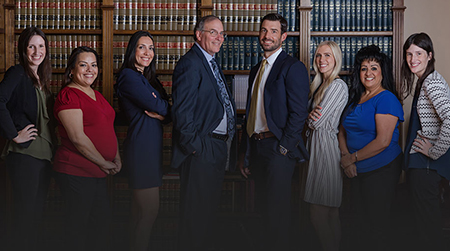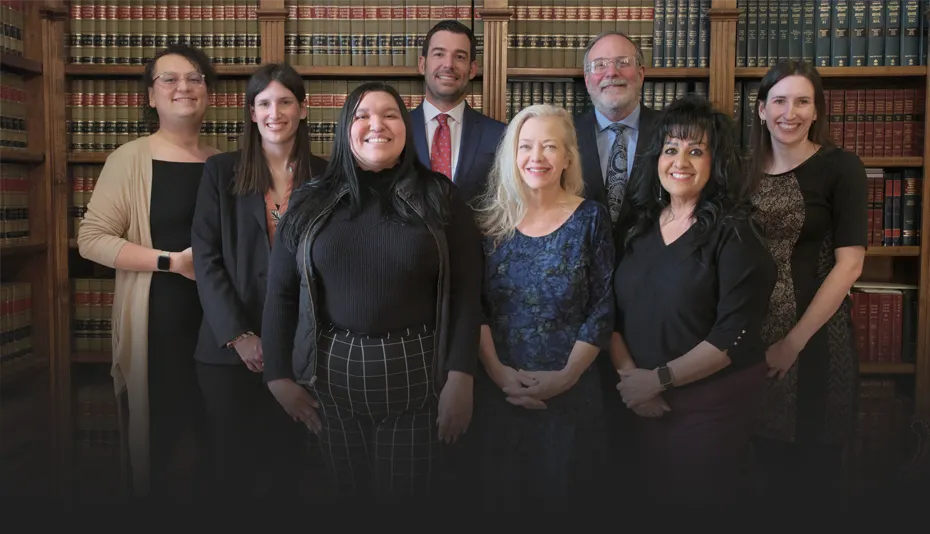Recent Results
Kidneigh, Kaufman & Crichton, P.C. is dedicated to helping you protect your rights in your personal injury case.
With over 30 years of experience, and over $100 Million recovered, we have a record of winning cases for our clients. We will fight the insurance company to ensure that you receive the damages you deserve.
If you or someone you love has suffered because of the negligence of another, call us at (303) 393-6666, or fill out the form to receive a free case evaluation. Someone from our office will contact you within 24 hours to start helping you with your case.
Wrongful Death
What Does “Wrongful Death” Mean?
Wrongful death is a legal term for a death that is caused by someone else’s actions or inactions. For example, wrongful death could happen due to negligence or medical malpractice. It could also happen due to someone else committing a crime, like assault or robbery.
Why Sue for Wrongful Death?
While nothing can bring back a lost loved one, there are reasons why the deceased’s family may pursue a wrongful death case. First, losing a loved one can create literal expenses, such as funeral costs and medical bills. Children and spouses will lose the wages their deceased parent or spouse would have earned, as well as the company and companionship of the deceased. While money can’t bring the lost loved one back to life, it can help fill in the financial gap that is left and the gaps it creates, especially if the death leaves behind a newly single parent forced to raise children on their own.
Second, the family of the deceased may only be able to vindicate the deceased or show that the deceased was wronged by winning a wrongful death suit. For example, O.J. Simpson was found not guilty in his criminal trial for the murder of Ron Goldman, but he lost the civil suit for wrongful death.[1] The Goldman family wasn’t pursuing money; they wanted justice for their son and punishment for the man who wrongfully took Ron’s life.[2]
Who Can Sue or Be Sued for Wrongful Death?
The deceased’s spouse, children, heirs, or beneficiaries can bring a wrongful death action. Heirs are those of direct descent, meaning children, grandchildren, etc. Surviving parents of an unmarried and childless person can also bring suit.[3]
Basically, if the person were alive and survived their injuries or the harm and would have been entitled to sue, then whomever they would have sued can be sued for wrongful death.[4] For example, if a person survived medical negligence, they would sue the doctor, the hospital, the nurses, and other entities or persons. If they died due to medical negligence, their surviving family can sue those parties. However, if a person survives an elk attack, they can’t sue Colorado Parks and Wildlife since it has tort immunity.[5] Likewise, if the person dies from the elk attack, their surviving family can’t sue Colorado Parks and Wildlife for wrongful death either.
My Family Member Died, and I Think It Was Wrongful. What Do I Do Now?
The first thing to do is contact a personal injury attorney as soon as possible. Often, wrongful death is one count of a complaint, as there may be other claims against the defendant, such as negligence, and a personal injury lawyer knows how to handle all of these claims. If you have survived the wrongful death of a loved one, you may be entitled to receive damages in consolation, for your grief, and to compensate for any economic losses.
There are few things more painful than losing a loved one to an avoidable death. If one of your loved ones has died wrongfully, call one of our personal injury attorneys at Kidneigh, Kaufman & Crichton, P.C.n at 303-393-6666. We handle wrongful death cases, and we want to help you and your family recover from that loss.
[1] B. Drummond Ayres Jr. Civil Jury Finds Simpson Liable in Pair of Killings. https://www.nytimes .com/1997/02/05/us/civil-jury-finds-simpson-liable-in-pair-of-killings.html. (Feb 5, 1997).
[2] Id.
[3] Colo. Rev. Stat. § 13-21-201(1).
[4] Colo. Rev. Stat. § 13-21-202.
[5] Colo. Rev. Stat. § 24-10-106.



